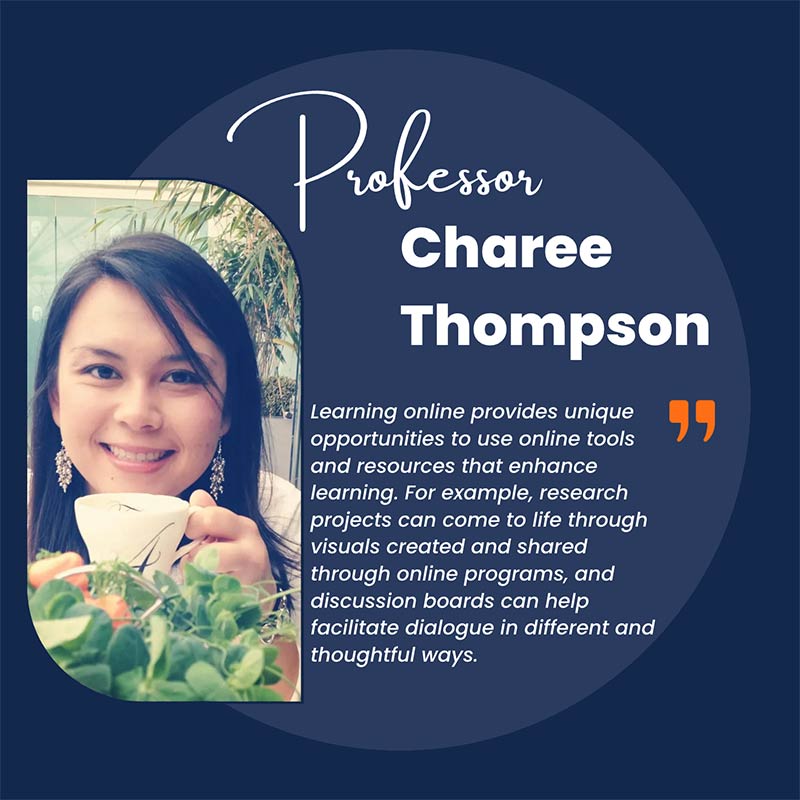PEOPLE
Our faculty members are leaders in the field of health communication.
We are engaged in cutting-edge research and have been funded by and reviewed grants for the National Institutes of Health (NIH), including the National Institute of Mental Health, the National Institute of Nursing Research and the National Cancer Institute, as well as the Centers for Disease Control and Prevention (CDC), William T. Grant Foundation, National Science Foundation (NSF), among others.
Why do HCOM students love their professors?
Why do HCOM students love
their professors?
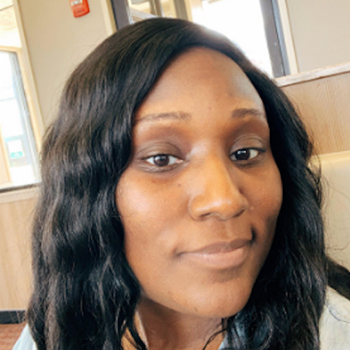
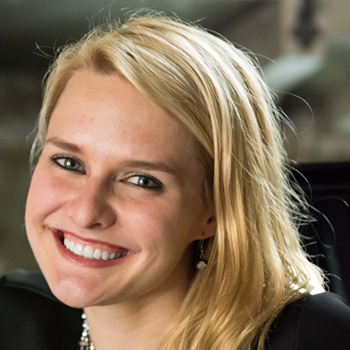
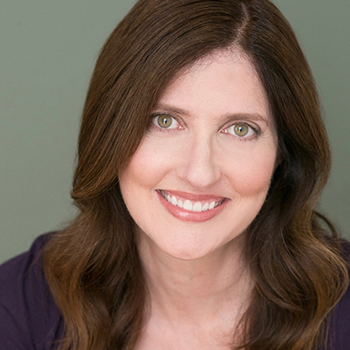

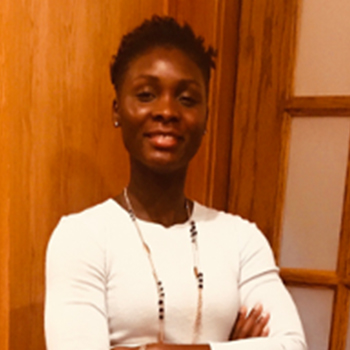
Click here to read more questions & answers.
Click here to read more questions & answers.
Teaching Faculty
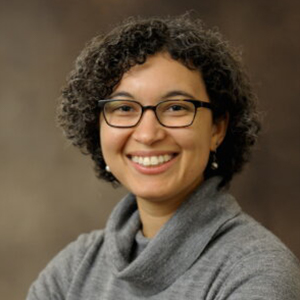
Cabral Bigman-Galimore, Ph.D.
Cabral Bigman-Galimore, Ph.D.
Health, Risk, and Inequality Communication
Cabral Bigman’s research focuses on communication about health, risk, and inequality. She is particularly interested in the influence that messages about comparative risk and inequality have on health and communication-related behavior.

Elisabeth Bigsby, Ph.D.
Elisabeth Bigsby, Ph.D.
eHealth
Elisabeth Bigsby studies persuasive health messages, such as anti-smoking campaigns, with a particular interest in how message features influence how people perceive and process information. Her overall interest is to understand how health information influences decisions to engage in health-related behaviors.
Prior to UIUC, Dr. Bigsby held positions at Northeastern University in Boston and the Center of Excellence in Cancer Communication Research at the Annenberg School for Communication at the University of Pennsylvania. Before completing her graduate studies, Dr. Bigsby spent three years working in the not-for-profit sector, including one year as an AmeriCorps volunteer.
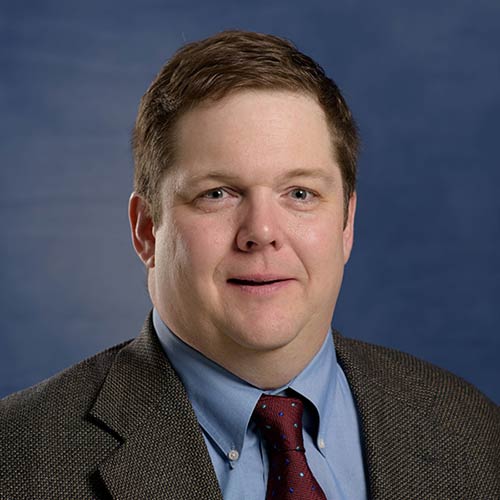
John P. Caughlin, Ph.D.
John P. Caughlin, Ph.D.
privacy management
Professor and Associate Head in the Department of Communication at the University of Illinois at Urbana-Champaign. Research and teaching interests: family communication, privacy and secrets, disclosure of HIV/AIDS. Professor Caughlin recently received the Bernard J. Brommel Award for Outstanding Scholarship in Family Communication from the National Communication Association.

Louise Clark, Ph.D.
Louise Clark, Ph.D.
medical education
Healthcare professions educator and researcher.
Previous positions include Assistant Professor of Medical Education and Assistant Dean of Clinical Skills Education & Innovation at the TCU & UNTHSC School of Medicine and Assistant Professor of Medicine and Deputy Director of Clinical Simulation at Uniformed Services University of the Health Sciences (USUHS).
Research and teaching: clinical communication skills in health care trainee education, compassionate communication in health-related organizations, and healthcare simulation education methodology. A recent research project examines an interprofessional simulation event designed to educate undergraduate medical and graduate nursing students on how to effectively assess and treat patients who have experienced military sexual assault. Her health communication scholarship is published in Health Communication, Communication Monographs, and Simulation in Healthcare. Additionally, she co-edited/authored a forthcoming book being published in Springer’s Comprehensive Healthcare Simulation Series – Implementing Best Practices of Standardized Patient Methodology.
Administrative: At TCU & UNTHSC, Dr. Clark created the human simulation (SP) program, opened related simulation facilities (e.g. mock clinic), recruited and trained the operations staff, and contributed to clinical skills and communication skills curriculum development. At USUHS, Dr. Clark oversaw a team of six full-time Clinical Educators who managed more than 300 simulation events annually (e.g., 75,000 learner contact hours) utilizing high fidelity manikins and standardized patient actors that role play with healthcare trainees in the United States Military. Currently, she provides consultative services including developing communication skills curriculum, coaching healthcare trainees and providers in clinical communication skills, and conducting related research for several healthcare organizations.
Representative partners include(ed): The Academy of Integrative Pain Management, Walter Reed National Military Medical Center, University of Vermont College of Medicine, University of Central Florida College of Medicine, and the University of Illinois College of Medicine – Chicago.
Dr. Clark holds a PhD in Human Communication with emphases in Health and Organizational Communication from Arizona State University.

Cara Finnegan, Ph.D.
Cara Finnegan, Ph.D.
visual health communication
Cara Finnegan is Professor and Associate Head in the Department of Communication at the University of Illinois. She studies how visual images communicate in the public sphere, with a special emphasis on political imagery and the history of photography. She is the author of three books, including Picturing Poverty: Print Culture and FSA Photographs (Smithsonian Press, 2003), Making Photography Matter (University of Illinois Press, 2015), and the forthcoming Daguerreotype to Digital: Presidents and Photography in Times of Technological Change (University of Illinois Press, 2020). Her research and teaching uses qualitative and humanistic methods to explore visual communication about topics such as poverty, health, war, politics, labor, gender, race, class, and the environment.

Lisa Guntzviller, Ph.D.
Lisa Guntzviller, Ph.D.
health literacy
Lisa Guntzviller is an assistant professor in the Department of Communication at the University of Illinois, Urbana-Champaign. Dr. Guntzviller has broad interests in interpersonal, family, and health communication, mainly with underserved populations (e.g., low-income, minority). Her research focuses on language brokering: when bilingual (English- and Spanish-speaking) children/adolescents linguistically and culturally mediate for their primarily Spanish-speaking mothers. She also studies social support processes, particularly in the context of giving advice, such as parent-to-child advice on health issues. Additionally, she has also published on patient-provider communication when the patient has communication difficulties (e.g., low English proficiency, low health literacy). Her research has often utilizes dyadic data and employs a multiple goals framework.

Elaine Hsieh, Ph.D., J.D.
Elaine Hsieh, Ph.D., J.D.
provider-patient communication
Professor in the Department of Communication at the University of Oklahoma.
My research interests focus on interpersonal issues in health contexts, with an emphasis on cross-cultural care. I have been involved in research on bilingual/cross-cultural health care for over 20 years. I currently pursue two lines of research dealing with health communication for non-English speaking, marginalized, and/or minority patients: (a) interpreter-mediated medical encounters and cross-cultural care, and (b) social support and health literacy in cultural contexts. I am particularly interested in (a) developing a model of bilingual health communication to explain and predict the effectiveness and appropriateness of interpreter-mediated medical encounters, (b) investigating how patients’ (cultural-specific) social support and health literacy influences their coping strategies and health behaviors, and (c) generating a theoretical model of coping that accounts for the social process and temporal aspects of illness management.
In recent years, I have been developing a new research line the centers on two issues: (1) the discrepancies between legal standards and known factors and practices for quality of care and (2) reconceptualizing privacy boundaries, patient autonomy, self-determinism, and health management in the era of genomic medicine. Going forward, I would like to examine how genetic technology and medicine present challenges to individuals’ management of health, privacy, and relationships. I am also interested in examining how institutional practices (e.g., informed consent), health policies (e.g., biobank management), and medicine in general (e.g., use and research of genetic materials) should respond to such paradigm shift in meanings of autonomy, privacy, and property interests. For my latest information and cv, please visit: https://elainehsiehphd.net

Sally Jackson, Ph.D.
Sally Jackson, Ph.D.
communication technology
Professor of Communication at the University of Illinois at Urbana-Champaign. Research and teaching interests: argumentation, communication technology, research methods.

Leanne Knobloch, Ph.D.
Leanne Knobloch, Ph.D.
conflict management
Professor of Communication at the University of Illinois at Urbana-Champaign. Research and teaching interests: relational uncertainty, interpersonal relationships and mental health. Professor Knobloch is engaged in cross-disciplinary research investigating the role of relational stability or uncertainty on outcomes such as depression.

John Lammers, Ph.D.
John Lammers, Ph.D.
health professions and policy
Professor of Communication at the University of Illinois at Urbana-Champaign and Director of the HCOM program. Research and teaching interests: institutional theory, communication in health care organizations, and leadership. Professor Lammers consults with health care organizations, is the past chair of the Organizational Communication division of the National Communication Association, and is a past chair of the Health Communication Division of the International Communication Association.

Brian Quick, Ph.D.
Brian Quick, Ph.D.
health marketing
Professor of Communication as well as the College of Medicine at the Universityof Illinois at Urbana-Champaign. He is also the Associate Director of the HCOM program. Together, Professor Quick and his associates strive to save lives as well as greatly improve the quality of life for individuals by reducing the number of individuals currently waiting for an organ, cornea, or tissue transplant by way of designing, implementing and evaluating multi-media campaigns. His research also examines the role of cognition and emotion at work when processing persuasie health messages as well as portrayals of health issues to understand how these messages create, change and reinforce belief structures.

Charee M. Thompson, Ph.D.
Charee M. Thompson, Ph.D.
uncertainty management
I study health communication in personal and patient-provider relationships, specifically focusing on the role communication plays in how people understand health. My research illuminates two perspectives: individuals’ understandings of their own health and individuals’ understandings of others’ health. My first line of research examines how people’s understandings of their own health are fundamentally shaped by their identity—who they are and who they want to be in relation to health. My second research area involves investigating how healthcare providers and personal social network members experience and manage uncertainty they have when trying to understand another’s health.

Lauren Weiner, Ph.D.
Lauren Weiner, Ph.D.
families and health
Program Coordinator and Academic Advisor for the HCOM program. Dr. Weiner’s role includes designing and teaching courses, advising current and prospective students, providing professional mentoring for students and overseeing several administrative tasks within the program. Research and teaching interests: health and family communication, family communication and conflict, family communication about genetic risks, and developmental care in NICU families.
Faculty Spotlight
Professor Charee Thompson, Ph.D., University of Texas at Austin
What made you decide to become a professor?
Graduate school! I realized then that I could combine my love of learning with the importance of learning with and from others.
What course(s) do you teach in the program?
I teach Stigma in Healthcare, Research Methods 1 and Research Methods 2.
How is the experience of learning online different to that of learning in a traditional classroom?
Learning online provides unique opportunities to use online tools and resources that enhance learning. For example, research projects can come to life through visuals created and shared through online programs, and discussion boards can help facilitate dialogue in different and thoughtful ways. Online learning also increases access for many and has recently been helping us navigate pandemic times.
Why do you recommend pursuing a Master’s degree in Health Communication? And, why this particular program?
Often, students feel that they’ve just gotten a sampling of health communication once they finish a bachelor’s degree, so a master’s degree provides the space to dive a little deeper into topics of interest and to hone critical communication skills. Our program is simply top-notch! We have such a breadth and depth of expertise in health communication, and we are committed to providing a quality learning experience.
What research projects are you currently working on?
I’m currently working on the following projects: COVID-19 “Long-haulers” and crowd-sourced medicine; how patients and providers communicate during pain consultations; how people navigate health-related financial uncertainty; and how people accept and deny illness in their relationships.
Our Students and Alums
Wonder what it’s like to be in the HCOM program? Here’s what our students and alums say about the HCOM experience:






